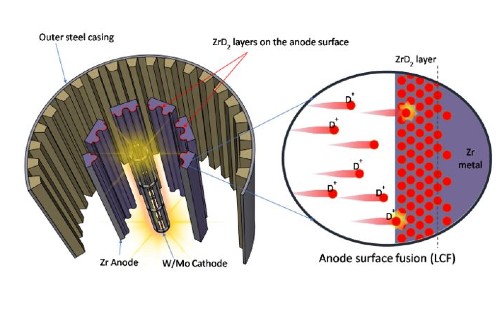Currently, the UK depends on imports of radioisotopes for the vast majority of the 700,000 nuclear medicine treatments and diagnostic procedures it dispenses each year. However, many of the source reactors of these radioisotopes, particularly Technetium-99m (99mTc), are due to close before 2030.
Therefore, the UK has a stated strategic need that by 2026 it should have become predominately self-sufficient in the production of medical radioisotopes required by the NHS for diagnostic and therapeutic treatments.
Towards meeting this challenge, this project aims to demonstrate the capability of a compact inertial electrostatic-lattice confinement (IELC) fusion particle generator for the purpose of producing medical radioisotopes at low-cost.
The resulting output will be the commissioning and demonstration of a proton and neutron generator capable of producing medical radioisotopes. The researchers will primarily utilise deuterium-deuterium (DD) fusion for neutron production and deuterium-3helium (D3He) fusion for proton production.
This 24 month Challenge Led Applied Systems Programme (CLASP) project will be led by Prof Tom Scott from the School of Physics alongside Professor Neil Fox, Dr Tomas Martin and Dr Yannick Verbelen. Collaborators will include Dr Simon Middleburgh at the University of Bangor, and Professor Mahmoud Bakr from Kyoto University.
Professor Scott commented: “This is such an exciting opportunity to do something game-changing for the NHS and its supply of radioisotopes for diagnostic and therapeutic treatments. We really believe that this technology, once fully developed, could benefit millions of lives in the UK and around the world.”
Jason Green, Associate Director for External Innovations, said: “The CLASP fund was designed to take STFC technology and apply it to solve some of society’s greatest challenges. This fund empowers scientists to utilise their skills and expertise to create real-world impact.
"The projects funded in this round take technology first created to understand the fundamental questions in science, to create novel solutions for challenges such as cancer treatment and medical diagnostics.”
